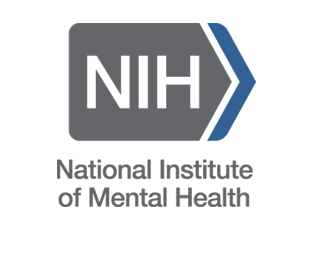
Message From SfN President Eric Nestler: Strengthen Your Focus on Advocacy
 As the new year begins and a new administration and Congress assume leadership of the U.S. government, now is the time to increase your advocacy in support of robust funding for neuroscience and biomedical research, both in the U.S. and around the world.
As the new year begins and a new administration and Congress assume leadership of the U.S. government, now is the time to increase your advocacy in support of robust funding for neuroscience and biomedical research, both in the U.S. and around the world.
Although there are many unknowns, as with any new Congress or administration, we should focus on what we do know. We know that we are making transformational discoveries about the brain and that the field holds even greater promise. We know that we need greater resources to advance scientific progress in the neurosciences, given the unparalleled impact of brain diseases on humanity, as summarized below. We know that we need to collaborate with one another, across borders and across cultures, to forward our understanding of the brain and nervous system. And we know that investment in biomedical research offers the greatest returns in terms of improving a nation’s health and economic well-being.
We can see proof of this in the momentum coming from the U.S.’s Brain Research through Advancing Innovative Neurotechnologies (BRAIN) Initiative and similar projects around the world, including the China Brain Project, the Brain/MINDS Project in Japan, and European neuroscience projects. These initiatives are moving the field forward in leaps and bounds as they spark innovative technologies and important biological discoveries. In just a short time, we’ve seen BRAIN-funded breakthroughs such as a blueprint for a brain-scanning helmet, targeted therapies for turning selected neurons on and off, and a method for simultaneously sequencing the genes of tens of thousands of neurons in one experiment.
Disorders of the brain and nervous system exert a terrible toll on individuals, families, and society as a whole, resulting in suffering, disability, and staggering costs. Our research is helping to unravel the mysteries of the brain, laying the foundation for treatments and cures for these devastating illnesses that affect an estimated billion people worldwide and cost society trillions of dollars.
The World Economic Forum estimates the global cost of mental illness in 2010 was $2.5 trillion, with the cost projected to surge to $6 trillion by 2030. The Institute for Health Metrics and Evaluation noted that mental disorders, such as depression, anxiety, and drug addiction, are the primary drivers of disability worldwide, causing over 40 million years of disability in 20- to 29-year-olds. And, every three seconds, someone in the world develops dementia, with the global cost of dementia estimated to rise to a trillion dollars by 2018, according to the World Alzheimer Report 2015. Taken together, neurological and psychiatric disorders represent more than 13 percent of the global burden of disease, surpassing both cardiovascular disease and cancer.
Basic research will drive progress to treat — and one day cure and eventually prevent — these illnesses. Continuing to fund brain science, such as the U.S. has recently done through the 21st Century Cures Act, signed into law late last year, is essential to sustaining growth in the field. The Cure Act provides $1.5 billion in targeted funding for the BRAIN Initiative over 10 years as part of a larger investment in NIH that also includes funding for cancer research and precision medicine. However, this new funding is a targeted investment and must be in addition to, not in place of, continued strong funding for NIH and NSF in the fiscal year 2017 appropriations bill.
Investment in biomedical research can serve as a unifying force in our divisive time. Brain diseases affect people from all countries, from all cultural and ethnic backgrounds, from all political parties. At SfN’s Capitol Hill Day last year, members of the U.S. Congress in both parties agreed that neuroscience research is imperative for the health of our citizens and the economic vitality of the nation and a focal point for bipartisan partnership. According to a report from United for Medical Research, NIH research funding generated an estimated $60 billion in economic output and directly or indirectly supported more than 350,000 jobs nationwide in 2015.
The 21st Century Cures Act passed the U.S. Congress with overwhelming bipartisan support, showcasing the widespread awareness of the need for more research funding. We saw similar widespread congressional support for an increase in biomedical research funding in the FY2016 U.S. budget, which allocated an additional $2 billion for NIH — the strongest support for the agency since 2003 — and increased NSF funding to $7.5 billion.
The global scientific community looks to NIH as a leader, and the U.S. has long been the top funder of biomedical research globally. We need to build upon this history of positive momentum, or risk having other nations surpass the U.S. with their investment in medical R&D and the economic development driven by such world leadership.
Given the uncertain political environment, we must vow an even stronger commitment to advocating for our research and our field. SfN is working hard to help secure the future of biomedical research by serving as a unified voice for the neuroscience community and by advocating on our members’ behalf. However, science advocacy can only move forward effectively with the active engagement of we scientists. I encourage you to learn more about what SfN is doing to advocate for neuroscience and get involved yourself — join SfN’s Advocacy Network, engage with your SfN chapter in public outreach, partner with local chapters of patient advocacy groups, and learn more about the impact of Congress’ work on what happens in your lab.
Gain inspiration from SfN’s Early Career Policy Ambassadors, who have lead in-person meetings and lab tours with elected officials and their staff, as well as started letter-writing campaigns on important science policy issues. Many other SfN members have written opinion-editorials or letters to the editor in support of funding for biomedical research and the responsible use of animals in research.
These types of individual advocacy efforts by SfN members — and we are nearly 38,000 people strong if everyone participates — help convey the personal nature of our research, its positive impact on our local communities, and the fundamental importance of robust funding for neuroscience research for human health. I challenge you to engage and build meaningful working relationships with your elected officials — local, state, and federal — throughout the year to support the future of our field.






















